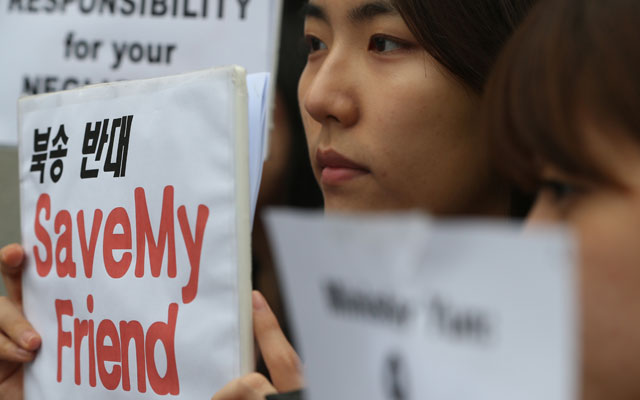The recent release of the United Nations Commission of Inquiry on Human Rights in North Korea (COI) confirmed that the Kim regime has committed crimes against humanity. The report made human rights abuses in North Korea indisputable, and the egregious findings should compel the international community to take action. Yet little action has been taken.
At a recent panel at The Heritage Foundation, experts detailed the important role the U.S. and the international community can and should play in combatting human rights abuse in North Korea.
“Our greatest challenge has been for more than two decades now this competition between human rights on the one hand and hard political issues on the other hand,” said Greg Scarlatoiu, executive director of the Committee for Human Rights in North Korea. “[B]ringing up human rights in North Korea is not a nuisance for those that are trying to achieve some progress on the nuclear and missile front.” Scarlatoiu thought that pre-existing dialogues on North Korean nuclear and missile issues could be used to further awareness and incentivize action to oppose North Korea’s atrocious record on human rights.
Scarlatoiu cited House Foreign Affairs Committee chairman Ed Royce’s (R–CA) bill, H.R. 1771, as a potential way that defense and human rights issues could work in tandem. The bill would increase sanctions on North Korea, designate the country as a primary money laundering concern, and allocate funding generated from sanctions to go toward humanitarian activities in North Korea.
Past sanctions, such as the crackdown on Banco Delta Asia, have garnered compliance from North Korea—but there’s more that the U.S. can do.
Heritage senior fellow for Northeast Asia Bruce Klingner, who took part in the panel, has written:
The United States possesses an array of strong punitive measures that it can levy on Pyongyang. It has employed many of these against Iran. The Obama Administration should overcome its reluctance to impose more extensive punitive measures against Pyongyang and the foreign entities that assist its nuclear and missile programs.
Scarlatoiu also noted the importance of working through the United Nations Security Council to pass a resolution to hold North Korea accountable for its continued crimes. John Sifton, Asia advocacy director at Human Rights Watch, asserted that it was not necessarily a given that China would, under all circumstances, veto such a resolution, so international human rights groups shouldn’t abandon the possibility of a successful resolution or the possibility of effective transitional justice for the people of North Korea.
Finally, all three panelists agreed that the Obama Administration, U.S. allies, and the international community should amplify pressure on the Kim regime by being more vocal about North Korea’s human rights violations. Sifton and Klingner noted the relative silence of traditional human rights advocates, such as Samantha Powers and other members of the Obama Administration, and called for increased condemnations of the brutal regime.
The U.S. and the international community have gathered enough evidence through the COI report, and now that evidence demands a verdict.



























